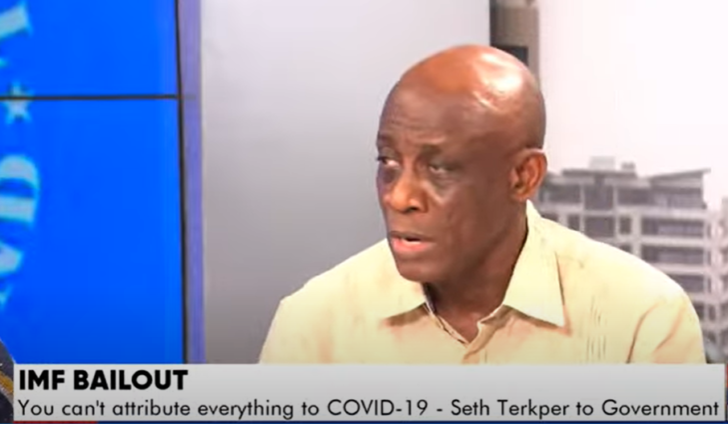Former Finance Minister, Seth Terkper, says he is open to joining the Ghana team in the negotiation with the International Monetary Fund (IMF).
Government formally opened negotiations with the IMF from 26/9/2022 with issues about Ghana’s rising debt stock and fiscal status dominating the discussions.
This was after government made a request to the IMF for some financial support for its Enhance Domestic Programme, aimed at dealing with the current challenges facing the economy.
The engagement which will last for about two weeks is expected to end on October 7, 2022.
According to Seth Terkper the only way to get a deal that will not have severe repercussions on the economy is to have a national dialogue.
He believes a national dialogue will ensure consensus building and bring forth solutions to some of the teething problems that face the country as it goes into the negotiation room with the IMF.
Speaking on JoyNews’ PM Express, he noted that in the spirit of goodwill as espoused by Former President, John Dramani Mahama, he would join such a national dialogue if he is invited to.
He further encouraged all and sundry to do same for the greater good of Ghana.
“My former President called for a national dialogue. We did a national dialogue at Senchi. So I’m with my President on that point, that the problems require all Ghanaians at the table. We did it, that’s what Senchi was all about. We did it with labour and others, that’s what Ho and Takoradi were all about.
“So it’s not new to me and… I said President Mahama has made that call already and I believe that he made it in good faith so all Ghanaians should join,” he said.
Meanwhile, the International Monetary Fund (IMF) has announced that its economic programme with Ghana will focus heavily on debt sustainability.
This was captured in a Question and Answer statement issued by the IMF as it begins deliberations with the Government of Ghana on an Economic Programme aimed at stabilising Ghana’s economy.
The IMF also added that the programme will support the credibility of government policies, restore confidence in the central bank’s ability to manage inflation and accumulate foreign exchange reserves to help the local currency withstand headwinds.
On the Fiscal sector, the IMF noted that an important policy objective would be to increase revenues, critical for debt sustainability while safeguarding spending on health, education, and social protection.
Latest Stories
-
DAMC, Free Food Company, to distribute 10,000 packs of food to street kids
33 minutes -
Kwame Boafo Akuffo: Court ruling on re-collation flawed
52 minutes -
Samuel Yaw Adusei: The strategist behind NDC’s electoral security in Ashanti region
55 minutes -
I’m confident posterity will judge my performance well – Akufo-Addo
1 hour -
Syria’s minorities seek security as country charts new future
2 hours -
Prof. Nana Aba Appiah Amfo re-appointed as Vice-Chancellor of the University of Ghana
2 hours -
German police probe market attack security and warnings
2 hours -
Grief and anger in Magdeburg after Christmas market attack
2 hours -
Baltasar Coin becomes first Ghanaian meme coin to hit DEX Screener at $100K market cap
3 hours -
EC blames re-collation of disputed results on widespread lawlessness by party supporters
3 hours -
Top 20 Ghanaian songs released in 2024
3 hours -
Beating Messi’s Inter Miami to MLS Cup feels amazing – Joseph Paintsil
4 hours -
NDC administration will reverse all ‘last-minute’ gov’t employee promotions – Asiedu Nketiah
4 hours -
Kudus sights ‘authority and kingship’ for elephant stool celebration
4 hours -
We’ll embrace cutting-edge technologies to address emerging healthcare needs – Prof. Antwi-Kusi
4 hours

